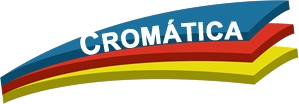Indiana University Bloomington
Biology is the study of living organisms: their structure, function, organization, origin, and evolution. Four unifying principles form the foundation of modern biology: cell theory, evolution, genetics and homeostasis. Students who study the biological sciences will be able to pursue many career avenues particularly within research, teaching, sales and in field work roles. Evolution is the change over time that is the engine of biological diversity. Whatever the initial tension between the two disciplines, newer methods and critical insights made their way into evolutionary biology leading to a new area of research traveling under the new banner of molecular evolution.
For subjects like cellular biology, genetics and epidemiology, practical work is likely to be lab-based, while ecology or environmental biology students will be expected to do field work. On this module you’ll attend lectures, practical classes and workshops, and take part in external visits and fieldwork study. The branch of science which deals with the study of living beings. Here, undergraduates, graduate students, and faculty collaborate on laboratory research, fieldwork, and publications with real-world application.
We offer a core curriculum for all of the biological sciences” taught at Western and exceptional graduate and undergraduate programs in Biology and sub disciplines. Those specializing in this field will explore complex biological phenomena in multi-cellular organisms, looking at the organization and behavior of different cells and tissues, and examining the function of molecules within the organism. The scope of Biology Letters is vast — publishing high-quality research in any area of the biological sciences.
Taking the SAT Subject Test in either Biology Ecological or Biology Molecular can help you indicate to colleges that you are interested in focusing on science. Some universities will offer more specialised degrees within the biological sciences such as zoology or ecology. The 20th and 21st centuries may be known to future generations as the beginning of the “Biological Revolution.” Beginning with Watson and Crick explaining the structure and function of DNA in 1953, all fields of biology have expanded exponentially and touch every aspect of our lives.
Our scientific expertise spans the realm of biological sciences to drive advances in medicine and healthcare, biotechnology, education, and public policy. Biological science as done in the laboratory is so much more complicated than Wason’s test systems that it’s certainly fair to question the relevance of simple card tricks played on unsuspecting undergraduate students on what educated people in white coats do in the lab.
